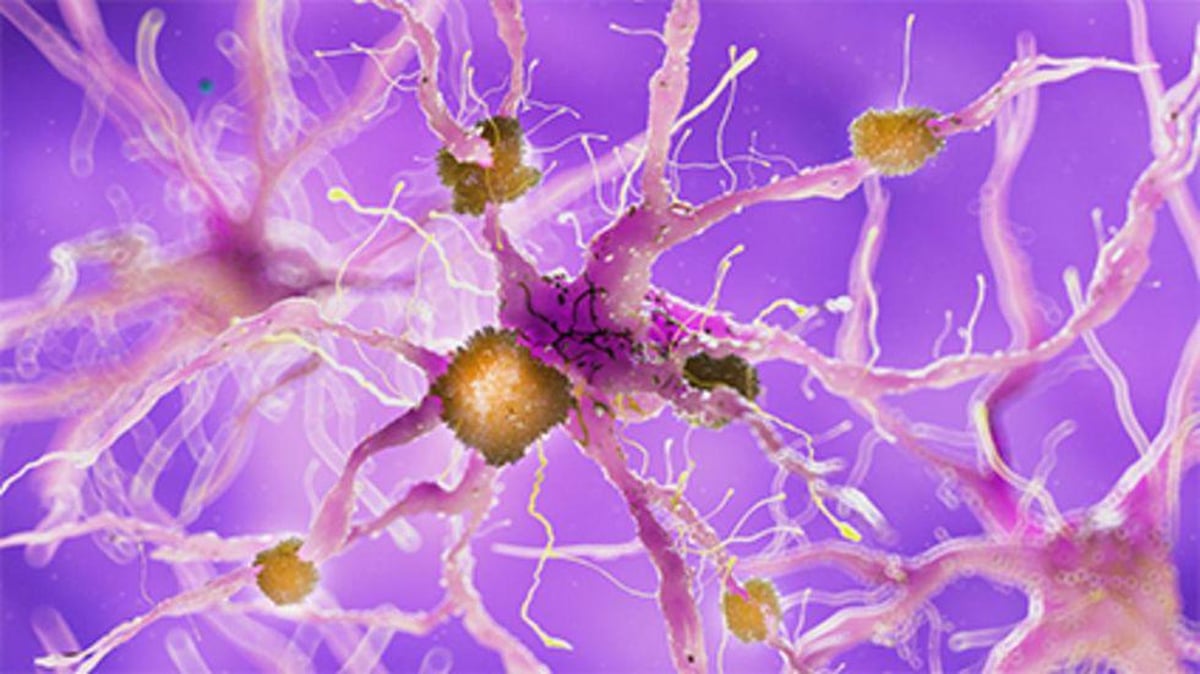What Is Early-Onset Alzheimer’s?

TUESDAY, June 20, 2023 (HealthDay News) -- There’s understandable uncertainty and fear following an Alzheimer’s diagnosis, but when that diagnosis comes before the age of 65, it can be even more terrifying.
Known as early-onset Alzheimer's, the condition is rare and strikes its victims in their 40s and 50s, even their 30s. Here, experts will dig into the causes, symptoms and treatment for this particularly devastating diagnosis.
What is early-onset Alzheimer's?
Alzheimer’s is a progressive brain disorder that impacts memory, thoughts and behaviors. It’s considered a disease of aging because it usually affects individuals over 65.
But early-onset Alzheimer’s, also referred to as young-onset Alzheimer’s, is different because it affects people before the age of 65. It’s considered rare, with only about 5% of all Alzheimer's patients having the early-onset type.
There are some distinct differences between early-onset and late-onset Alzheimer's, according to the BrightFocus Foundation.
- Memory loss shows up later in the progression of the disease and is less notable in early-onset Alzheimer’s.
- Individuals with early-onset disease might demonstrate difficulty finding words when communicating.
- Visual complaints, including difficulty reading, are not uncommon in early-onset Alzheimer’s.
- The inability to perform limb movements on command is a unique difference in disease presentation.
- Some early-onset patients become apathetic, which is not linked to depression.
Research and data on early-onset Alzheimer’s life expectancy aren’t readily available. In fact, an Indiana University School of Medicine article concludes this is “due to the rarity of this form of Alzheimer’s and the fact that very few research studies have been done to date.”
Early-onset Alzheimer's causes and risk factors
According to the Mayo Clinic, experts don’t completely understand why some people have the disease at an early age. A genetic mutation in a small number of patients with early-onset Alzheimer’s disease points to a cause. But in others, the reason is unclear.
While genetics may or may not play a role in the development of this disease, family history isn’t a definitive indicator. In other words, a family history of Alzheimer’s disease isn’t an indication someone will have early-onset Alzheimer’s disease.
There is, however, a strong genetic link in individuals with Down syndrome. This population is at higher risk of developing young-onset Alzheimer’s disease. Due to their genetic makeup, Dr. Andrew Budson said in a recent Harvard Health article, “More than half of people with Down syndrome develop Alzheimer's disease, typically in their 40s and 50s."
Early-onset Alzheimer's symptoms
According to leading experts at Johns Hopkins Medicine, symptoms are similar to other types of Alzheimer’s disease and affect memory, thoughts and behavior.
Symptoms seen in the beginning stages of early-onset Alzheimer’s include:
Memory:
- Forgetting newly learned information or dates
- Asking for information repeatedly
Thoughts:
- Difficulty with simple problem-solving, like following a recipe
- Losing track of the date or time of year
- Losing track of time and place (where you are or how you got there)
- Misplacing things, with difficulty retracing your steps to find it
Behavior:
- Difficulty finding words or trouble participating in conversations
- Problems with depth perception or other vision problems
- Demonstrating poor judgment, like being careless with money
- Withdrawing from social situations, including work
- Changes in mood or personality
Symptoms seen in the later stages of early-onset Alzheimer’s include:
- Severe mood swings and behavior changes
- Continued confusion about time, place and life events
- Suspicions about friends, family or caregivers
- Trouble speaking, swallowing or walking
- Severe memory loss
Early-onset Alzheimer's treatment
There’s no cure for early-onset Alzheimer’s disease, but there are treatments available to help improve symptoms and the quality of life.
Treatment includes a combination of medications, cognitive training and living a healthy lifestyle, including physical activity, a healthy diet and socialization.
Johns Hopkins Medicine reports these medications are used to improve cognitive function in patients with early-onset Alzheimer’s disease:
- Donepezil (Aricept)
- Rivastigmine (Exelon)
- Galantamine (Razadyne)
- Memantine (Namenda)
Living with early-onset Alzheimer's
Recognizing the signs of early-onset Alzheimer’s and reaching out to a medical professional for an early and accurate diagnosis is essential. It can make a difference in how quickly treatment begins.
Individuals diagnosed with early-onset Alzheimer’s are subject to a unique set of problems. This includes loss of employment and income, the financial burden of being uninsured or underinsured, and abrupt changes in family dynamics. Proactive discussions and planning can help minimize their impact.
“If you're younger than 65 and you're having memory problems, it's very unlikely to be Alzheimer's disease," Budson said. "But if it is, there are resources available from the U.S. National Institute on Aging that can help."
Related Posts
Battling Mom-to-Be’s Preexisting High Blood Pressure Brings No Harm to Baby
FRIDAY, April 8, 2022 (HealthDay News) -- When women go into pregnancy with mild...
USPSTF: Evidence Still Lacking for Atrial Fibrillation Screening
THURSDAY, Jan. 27, 2022 (HealthDay News) -- The U.S. Preventive Services Task...
La cantidad de adolescentes que vapean marihuana se ha duplicado en 7 años
MARTES, 26 de octubre de 2021 (HealthDay News) -- Los adolescentes han seguido...
Healthy Lifestyle Cuts Odds for Long COVID in Half
TUESDAY, Feb. 7, 2023 (HealthDay News) -- People who get COVID-19 are at risk...
